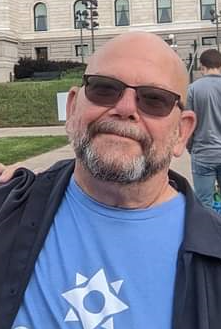By Judith Poole, Facilitator and Regional Coordinator, British Columbia, Canada
When I learned my son was addicted to opiates about five years ago, I felt completely helpless. I just wasn’t equipped to handle the situation or give my son the level of support he needed. Without tools or answers, I was so stressed in those early stages of his addiction that I ended up having a heart attack. Other support groups hadn’t worked for me. Like a lot of people, I looked for options on the Internet, and that’s where I discovered SMART Recovery.
SMART Recovery’s message resonated with me. It was exactly what I needed. At first, I t ook the facilitator training course for myself and my son. It gave me the tools I needed. I learned the skills to handle the stress of addiction and other problems, too. Thankfully, my son is fairly far along in the recovery process now. Yet soon after I completed the training and began attending meetings, I realized I was hardly alone…and there was absolutely nothing else out there for people like us.
ook the facilitator training course for myself and my son. It gave me the tools I needed. I learned the skills to handle the stress of addiction and other problems, too. Thankfully, my son is fairly far along in the recovery process now. Yet soon after I completed the training and began attending meetings, I realized I was hardly alone…and there was absolutely nothing else out there for people like us.
“I passionately wanted to give all I’ve learned to others and help SMART Recovery continue expanding and reaching more and more people.”
I’ve always been a big believer in volunteer work. A believer and a doer. But this was different. The cards were on the table in the most personal way possible, my son’s very life and mine were in jeopardy. SMART Recovery worked for us. I passionately wanted to give all I’ve learned to others and help SMART Recovery continue expanding and reaching more and more people. And I’ve been doing just that ever since.
To imagine a world without SMART Recovery, I have to think of the eleven people who regularly attend our local meeting. Eleven family members and friends, with no doubt more families and friends to come. It’s an ever-widening circle. What’s left in a world without SMART Recovery? A crumbling puzzle of mental health services lacking the glue that held it together for people like us.
We’ll never have to live in that world if we just give a little of what we’ve received from SMART Recovery. We’re the glue that holds SMART and ourselves together. Every single participant can easily volunteer. And as any volunteer quickly learns, we receive as much as we give, knowing we’re doing the right thing.
By our actions and words, we can also show other participants how they can do the same. Sometimes, it takes nothing more than being present. Here’s an example. At one of my very first Family & Friends meetings, someone showed up looking for a regular SMART Recovery meeting. When that person saw the faces of friends and family members, the decision to become a facilitator was made right then and there. Now the two of us both serve the community in that capacity. One volunteer soon becomes two, three, four, and more, the result of simply giving the benefits we’ve received back to their source: SMART Recovery. I can attest that whenever we give, our benefits increase.
Looking back, I obviously wish my son had never become addicted to opiates, yet the global opiate crisis has had one significant positive effect: No one can ignore addiction anymore because it’s no longer hidden from view in alleys, under bridges and in neighborhoods many of us would never dare visit. That stigma is gone. Now we know addiction never was “their” problem: It’s our problem. How can we not want to help?
There are so many ways you can help. You can become a facilitator. You can apply for training scholarships. You can read the volunteer job descriptions, select the best fit for you and volunteer online. If you’re professionally involved with addiction in any capacity, you can learn how to apply the SMART Recovery approach in your work. In all cases, you can access the wide range of free resources for volunteers.
We know addiction can happen to anyone because it’s already happened to ourselves or a loved one. SMART Recovery was there for us, and it’s our turn to volunteer and contribute financially, ensuring SMART reaches those who need it now. In alleys, under bridges, in “bad,” “good” and gated communities, those struggling with addictions and their friends and families need our support. They need choices. They need the tools we use every day. Join me and the thousands of SMART volunteers – help us make our homes, communities, and the world a better place.




![[Podcast] Growing into someone I never thought I could be](https://smartrecovery.org/hubfs/Imported_Blog_Media/Gee-Podcast-Tile-1-2.png)